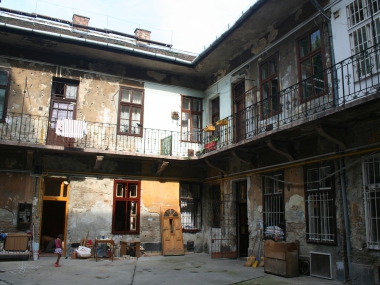EU Urban Agenda: The challenge of “affordable housing” in Europe -An Irish view
Edited on
12 January 2018In the recent national elections in both Ireland and Northern Ireland, housing emerged as a critical issue that needed tackling with a sense of emergency.

The subsequent establishment of a Ministry for Housing in Ireland – with a commitment to publish a housing strategy by the end of summer 2016 – drives home the scale of the challenges facing policy-makers, practitioners, developers and those caught up in the midst of the housing crisis alike.
In this article, penned by Laura Colini , the underlying argument that housing has become among the most worrisome and alarming issue in terms of socio-economic inequality is well-versed in an Irish context. Across the island of Ireland, both jurisdictions have experienced dynamic changes in demographic and socio-economic conditions which, in turn, have impacted on housing policy and provision and influenced how and where we live and, indeed, whether the ‘ultimate status of home-owner’ has been achieved. As noted by Simon Brooks, Head of Policy at Clúid Housing (the largest housing association in Ireland) in a recent Irish Times article (29th March 2016), housing is expensive and many people cannot afford to buy it – or pay a market rent for private rented housing. As such, affordable rental housing needs to be made more widely available. But there is undoubtedly a significant disconnect in how we plan and allocate housing.... A report by the Housing Agency published on 23rd May notes there are 230,056 vacant homes in Ireland, mostly in private sector ownership; a startling statistic to emerge in the context of the wider debate on the rising numbers of families in emergency accommodation, the still very low numbers of social and affordable housing being constructed and the ‘supply challenge’ being faced due to it taking up to four years to move from green-site to turnkey finish.
Colini’s article tables a number of interesting policy initiatives underway across Europe that are innovative in terms of addressing access to affordable housing. In Berlin, for example, the “rental price brake” was introduced through statute in 2015; and while this innovative policy won’t in itself solve the crisis it is a positive step forward. The following article also flags learning emanating from previously funded URBACT Projects such as Re-Block which sought to foster efficient regeneration of public housing estates including high rise housing; thus making them more attractive and improving their environmental quality, whilst creating an integrated tailor-made approach to combat poverty.
View the article by Laura Colini here
Submitted by Caroline Creamer on
